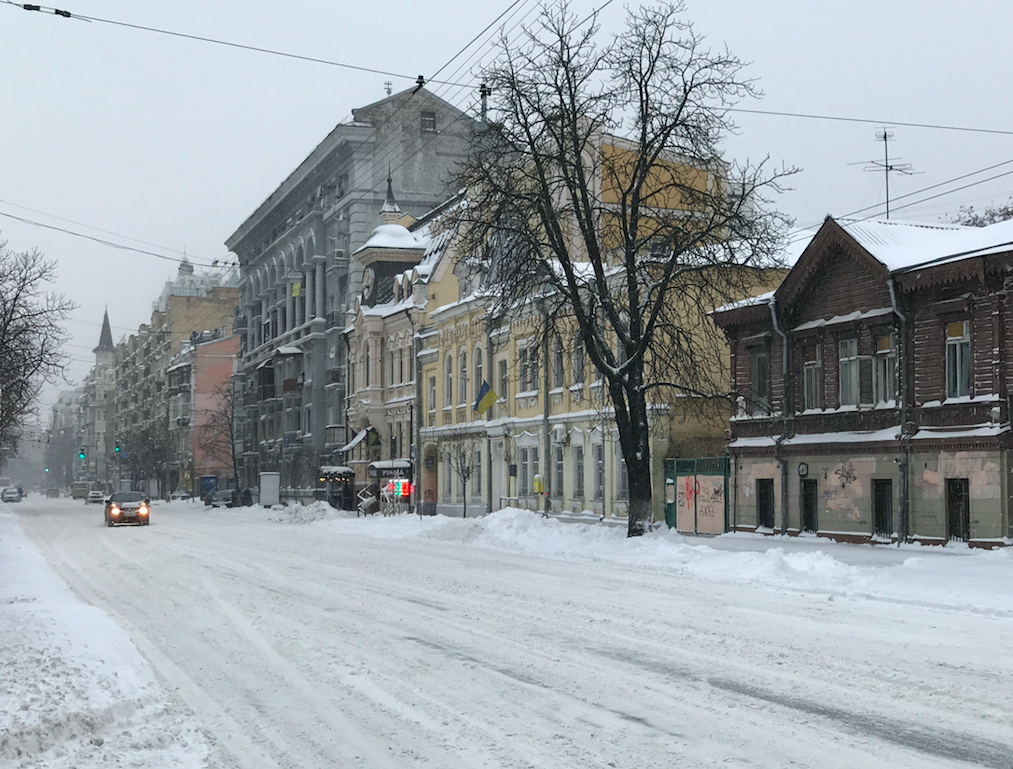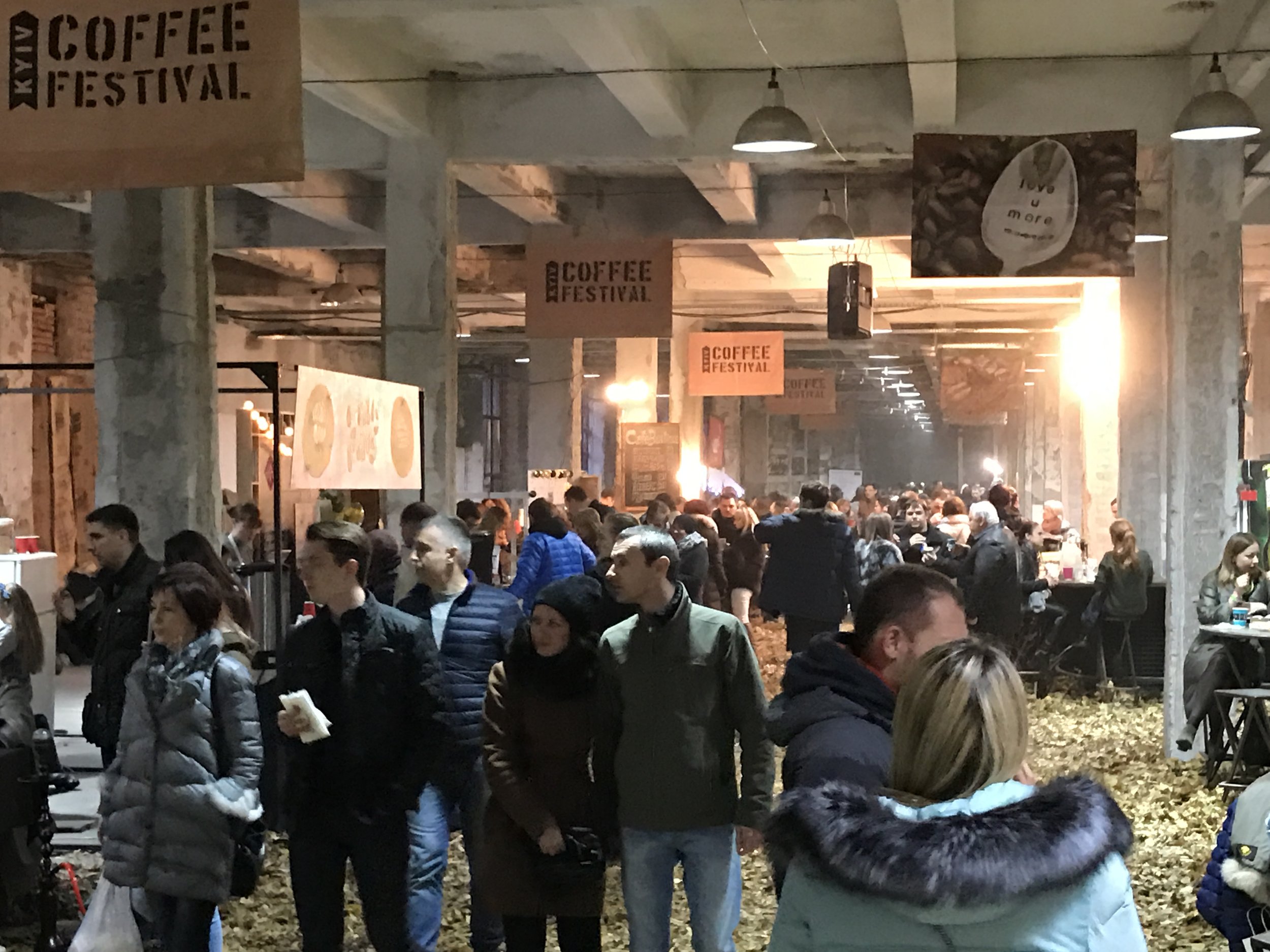
If the United States is a refined racehorse for consumers, Ukraine is a limping dog.
A Ukrainian who’s moved to the USA might be eager to purchase all the things that were once more cumbersome and expensive to purchase. I’m in the opposite position and purchase very little in Ukraine.
I have fewer possessions now than I did when I was 15 years old.
I’m on a “purging-things-from-my-life-that-don’t-serve-me” kick, which feels quite liberating. And, in Ukraine, I don’t need much.
And there’s liberation in this, let me explain…
It’s not like goods aren’t available in Ukraine. I can find most things (except salsa for my morning eggs—somebody please tell me where I can buy this!). But the consumer environment is drastically different here.
In Ukraine, the buying experience can be a draconian nightmare. The chances are 50/50 that the store clerk will be happy to see you, or will give you a suspicious, KGB-like glare, as if you poisoned their dog. What’s on the Internet might not be in the store, and that one thing you need might be on backorder for five weeks.

Then, there’s the store Epicenter. I remember my first time there. The organization was abysmal; I walked for hours. I found a spatula and then had to search for about half a kilometer to find another spatula. I struggled with why all spatulas weren’t organized in one place.
I felt like the experience crossed wires in my head. I ended up in a shopping-induced fog, much like the time it took me a whole day to find a notebook.
America is the master of curating the consumer experience to be fun, light, and easy. Thanks to Amazon, dopamine hits are only seconds away. With a simple click, whatever you need is at your doorstep, most likely that same day. If the product doesn’t suit your needs, you can just return it. I know people who have returned absolutely everything imaginable, myself included.
Amazon is very convenient and I like it. But, if not carefully monitored, it can become an intoxicating force—like a consistent pellet to a lab rat situation—and a serious drain on mental space.
Most Americans have no idea how much they consume on a regular basis until they leave home and go to a place like Ukraine. While I’m quite low on the consumption scale by American standards, I have noticed some behavioral changes in myself since moving to Kyiv.

For example, I never washed and reused Ziploc bags in the US. I never hanged my clothes to dry them—they always went into the drying machine. The trashcans in my Kyiv apartment can fit inside a large dollhouse, but they work fine. This is partly because the packaging is smaller, which means my refrigerator is smaller, which means the kitchen doesn’t need to be as big, which means the apartment doesn’t need to occupy as many square meters, which means I don’t need to heat as much space, etc.
Apply this equation to all facets of life, and all of these things add up big time.
I remember walking into the health food chain, Eco-Lavka, for the first time, and saying to myself, “There’s nothing in this store.” Now, I go there and find many things; my perspective has changed.
There’s no avoiding the fact that we are a product of our environment. The marketing machine that drives consumption in the USA is aggressive and deeply baked into the fabric of the culture. And Americans—like myself—are often in a constant battle against time, so they do anything they can to shave a few seconds, like using the drying machine or throwing away Ziploc bags.
A few things keep Ukrainians away from the hamster wheel of consumerism. The people aren’t circling new products like vultures, desperate to purchase their next hit of dopamine. This is partly because of economics, as well as the fact that credit is much harder to come by. Also, I don’t feel like excessive consumption is as deeply engrained in the DNA of Ukrainian culture as it is in USA culture. They’re not craving things as much to fill in a void.

So much casual conversation in America is centered on purchasing things, selling things, upgrading things, and just things in general. In Ukraine, conversations are less about purchases, and more focused on philosophic topics about life.
It’s undeniable that the inability to afford life and purchase necessities sucks everywhere. But it’s a lesser-known fact that having too much— being influenced to buy, and constantly having to upgrade—brings a different set of challenges.
I’m not that guy who will try to convince you that materialism is bad. I like my things. But I can say that despite growing up surrounded by excessive materialism, I’ve discovered that—for me—less is more. By spending less time on purchasing and maintaining those things, there is more time to think and work on myself, and more time to do what I want to do. My mind and life is freer.
American consumption looks great from afar, but I find it overrated. In my opinion, you’re not missing out on the excess game in the USA. Less is more in Ukraine.
Click here for last article.
If you’re interested in more content from UKRAINE and the WORLD visit these links below:
